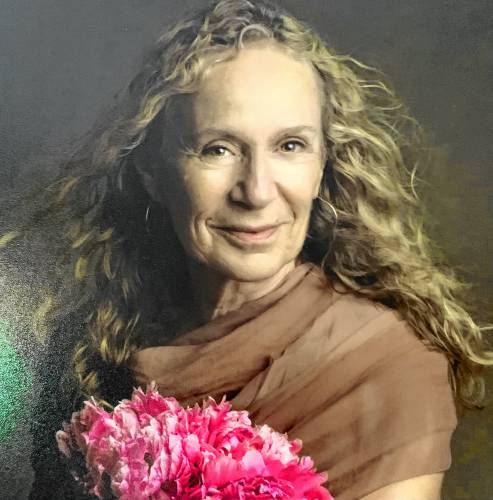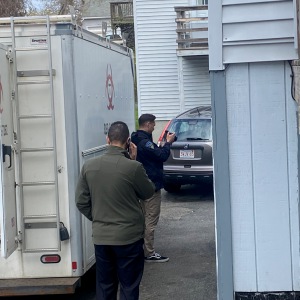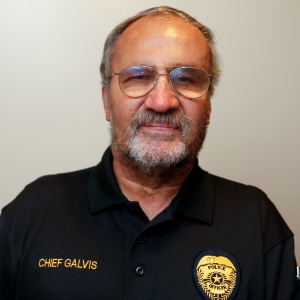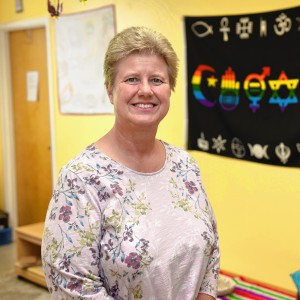Let’s Talk Relationships: When we’re alone, together: Unpacking how loneliness, now considered a public health crisis, winds up in our relationships

| Published: 09-01-2023 1:50 PM |
Loneliness is an emotionally painful experience. Many of us associate loneliness with being alone; however, one can experience loneliness at work, in a college classroom, at a party or at home with family. Studies even show that 33% to 40% of married people experience loneliness within their partnership.
In May, for the first time in history, the United States surgeon general called attention to what he considers a national public health crisis — an epidemic of loneliness and isolation that has harmed individual and societal health.
Appealing for a national strategy to advance social connection in all facets of society, Dr. Vivek Murthy states: “Our relationships are a source of healing and well-being hiding in plain sight — one that can help us live healthier, more fulfilled, and more productive lives. Given the significant health consequences of loneliness and isolation, we must prioritize building social connection the same way we have prioritized other critical public health issues such as tobacco, obesity, and substance use disorders. Together, we can build a country that’s healthier, more resilient, less lonely, and more connected.” To watch a brief video of the surgeon general’s advisory on our nation’s loneliness, see: https://tinyurl.com/2s3f54wm.
The surgeon general’s efforts actively reflect the immense need to cultivate a culture of connection. He aims to rally Americans to spend more time with each other in an increasingly divided and digital society.
What is not widely known is that close connections between people can dramatically help to reduce the risk of serious mental and physical health conditions such as immune system deficiencies, depression, addiction, hypertension, high cholesterol, stroke, heart disease and dementia. Strengthening the social fabric of our nation, which can significantly improve mental and physical health, involves a collective effort to spend less time online and incorporate more in-person interactions into our lives.
Drawing upon her 30 years of groundbreaking research, Sue Johnson, psychologist, researcher and author states: “We are social beings who are wired for connection and bonding with others. We instinctively seek contact and comforting connection. It’s in our DNA.” However, as Johnson points out, we’re “societally programmed to be self-sufficient and on our own islands.” She believes that a secure bond between partners requires attention and emotional responsiveness to each other, which contradicts this programming. Meaningful conversations are a large part of what creates closeness.
Why do so many of us feel lonely in our primary relationships? Perhaps we are not talking and listening to each other enough in meaningful ways.
External factors, such as juggling family and work responsibilities, can leave partners feeling as if they are two ships passing in the night. Quality time together becomes compromised. In addition, the stress from life transitions such as retirement, starting or going back to school, moving to a new area, becoming a parent, bereavement from the passing of a loved one, or losing a job, can challenge a couple and may even magnify existing weaknesses in the relationship. For example, if talking with each other about feelings is limited already and partners do not seek comfort from each other, any life stressor can become more challenging.
Article continues after...
Yesterday's Most Read Articles
 Police report details grisly crime scene in Greenfield
Police report details grisly crime scene in Greenfield
 Authorities ID victim in Greenfield slaying
Authorities ID victim in Greenfield slaying
 State records show Northfield EMS chief’s paramedic license suspended over failure to transport infant
State records show Northfield EMS chief’s paramedic license suspended over failure to transport infant
 New buyer of Bernardston’s Windmill Motel looks to resell it, attorney says
New buyer of Bernardston’s Windmill Motel looks to resell it, attorney says
 On The Ridge with Joe Judd: What time should you turkey hunt?
On The Ridge with Joe Judd: What time should you turkey hunt?
 Ethics Commission raps former Leyden police chief, captain for conflict of interest violations
Ethics Commission raps former Leyden police chief, captain for conflict of interest violations
Likewise, if partners don’t know the personal, intimate details of each other’s lives, (their inner thoughts, feelings, needs and dreams), they will lack the rich mutual understanding needed for the relationship to thrive.
When the relationship does not provide the ease and safety for partners to fully share the truth of who they are with each other, the result is disconnection. This lack of personal sharing may result in distance, misunderstandings, arguments, and loss of intimacy (both emotional and sexual). The spark of the relationship often fizzles out, leaving the partners feeling lonely.
Loneliness in a relationship can affect one’s well-being in other concerning ways. There may be a loss of motivation for engaging in healthy self-care, like exercising or eating well.
If you are feeling a sense of loneliness or isolation in your marriage or with your partner, here are five steps you can take to feel more connected:
■Talk about what you are feeling. Communicating in a non-blaming way will make it easier for your partner to really listen and be supportive, rather than shutting down or reacting defensively. For example, you might say: “I have been feeling really alone and I would love it if we could take a few minutes to talk about our day when we come back together every evening.” Talk more to each other in general — sharing hopes, dreams, happy moments, sadness, fear and longings. When we find that it feels safe to do this with each other, there won’t be room for loneliness.
■Carve out time for sharing quality experiences together (such as taking walks, making a meal, having date nights, participating in a new activity) on a regular basis. This can go a long way toward bringing about more connection.
■Limit your phone and social media use. At a certain time every evening, create time and space where you put down your phones and focus on each other instead.
■Let go of the stance that you are always “right.” Love and respect mean giving your partner room to be who they are — a person who is different from you, with their own views, opinions and perspectives. Allow these differences to co-exist, and listen well to each other. You could say: “I see it differently. Can you tell me more so that I can understand your perspective better?” Needing to be “right” all the time creates alienation, not inclusivity.
■Share appreciation of your partner often. Find something, big or small, that they do or say that you appreciate. Positive words create bridges.
I am cheering you on to be proactive if you feel lonely in your marriage or relationship. Feeling connected with one’s partner builds resilience, reduces stress, increases vitality, and serves as a healthy buffer to life’s inevitable challenges. Let’s help to create a culture of connection, starting right at home.
Amy Newshore is a couples therapist/coach who earned her Masters in Clinical Mental Health Counseling at Antioch New England University and went on to train in the Developmental Model for Couples Therapy along with NonViolent Communication which serve as the foundation of her work as a Relationship Coach. For more information visit her website at www.coachingbyamy.com.

 Speaking of Nature: Indulging in eye candy: Finally, after such a long wait, it’s beginning to look like spring is here
Speaking of Nature: Indulging in eye candy: Finally, after such a long wait, it’s beginning to look like spring is here Celebrating ‘Seasonings’: New book by veteran preacher and poet, Allen ‘Mick’ Comstock
Celebrating ‘Seasonings’: New book by veteran preacher and poet, Allen ‘Mick’ Comstock Faith Matters: How to still the muddy waters of overthinking: Clarity, peace and God can be found in the quiet spaces
Faith Matters: How to still the muddy waters of overthinking: Clarity, peace and God can be found in the quiet spaces A time for every purpose under heaven: Free sing-a-long Pete Seeger Fest returns to Ashfield, April 6
A time for every purpose under heaven: Free sing-a-long Pete Seeger Fest returns to Ashfield, April 6
